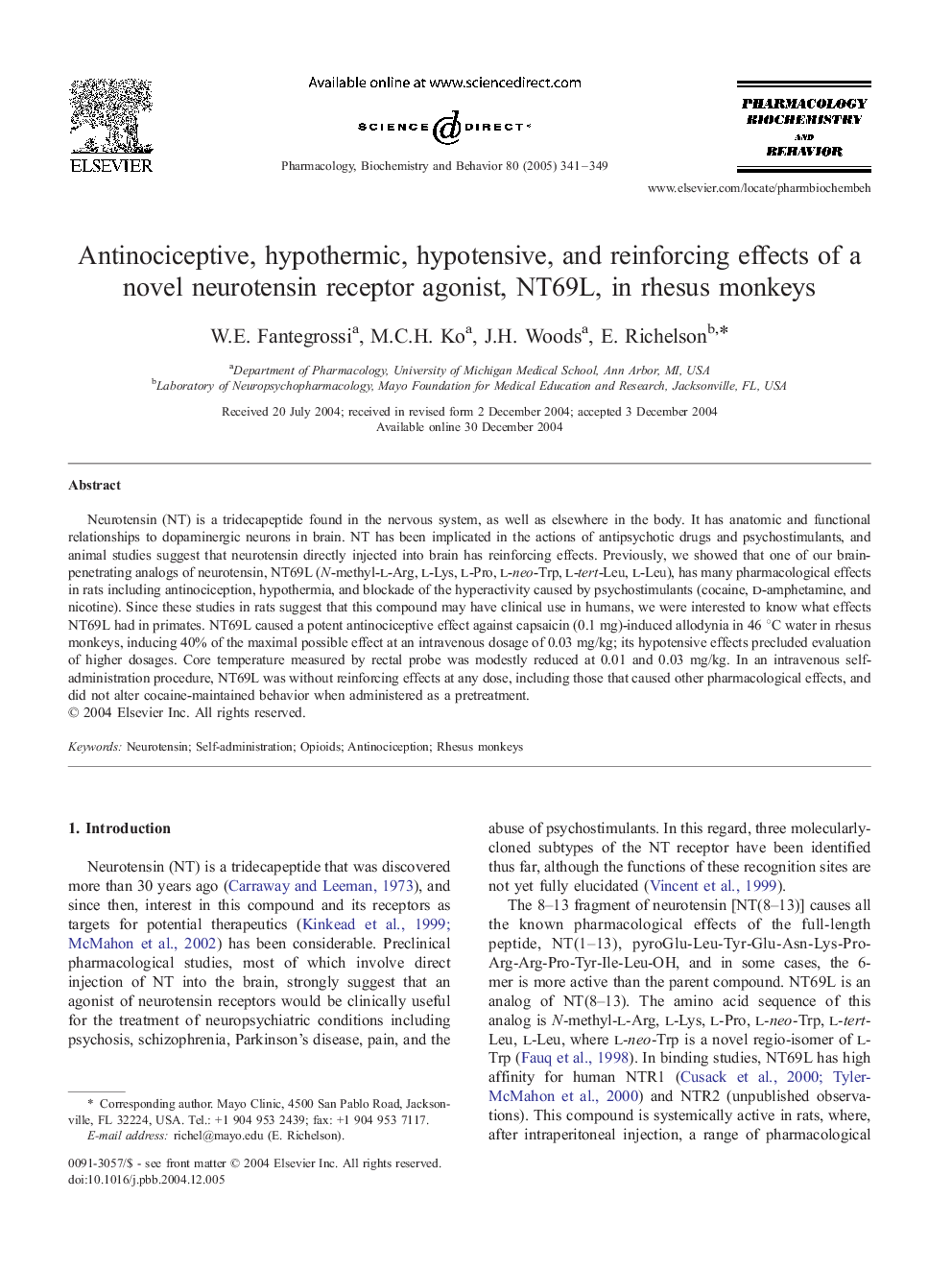| Article ID | Journal | Published Year | Pages | File Type |
|---|---|---|---|---|
| 10838824 | Pharmacology Biochemistry and Behavior | 2005 | 9 Pages |
Abstract
Neurotensin (NT) is a tridecapeptide found in the nervous system, as well as elsewhere in the body. It has anatomic and functional relationships to dopaminergic neurons in brain. NT has been implicated in the actions of antipsychotic drugs and psychostimulants, and animal studies suggest that neurotensin directly injected into brain has reinforcing effects. Previously, we showed that one of our brain-penetrating analogs of neurotensin, NT69L (N-methyl-l-Arg, l-Lys, l-Pro, l-neo-Trp, l-tert-Leu, l-Leu), has many pharmacological effects in rats including antinociception, hypothermia, and blockade of the hyperactivity caused by psychostimulants (cocaine, d-amphetamine, and nicotine). Since these studies in rats suggest that this compound may have clinical use in humans, we were interested to know what effects NT69L had in primates. NT69L caused a potent antinociceptive effect against capsaicin (0.1 mg)-induced allodynia in 46 °C water in rhesus monkeys, inducing 40% of the maximal possible effect at an intravenous dosage of 0.03 mg/kg; its hypotensive effects precluded evaluation of higher dosages. Core temperature measured by rectal probe was modestly reduced at 0.01 and 0.03 mg/kg. In an intravenous self-administration procedure, NT69L was without reinforcing effects at any dose, including those that caused other pharmacological effects, and did not alter cocaine-maintained behavior when administered as a pretreatment.
Related Topics
Life Sciences
Biochemistry, Genetics and Molecular Biology
Biochemistry
Authors
W.E. Fantegrossi, M.C.H. Ko, J.H. Woods, E. Richelson,
